The Ten Commandments of Caring for Senior Dogs
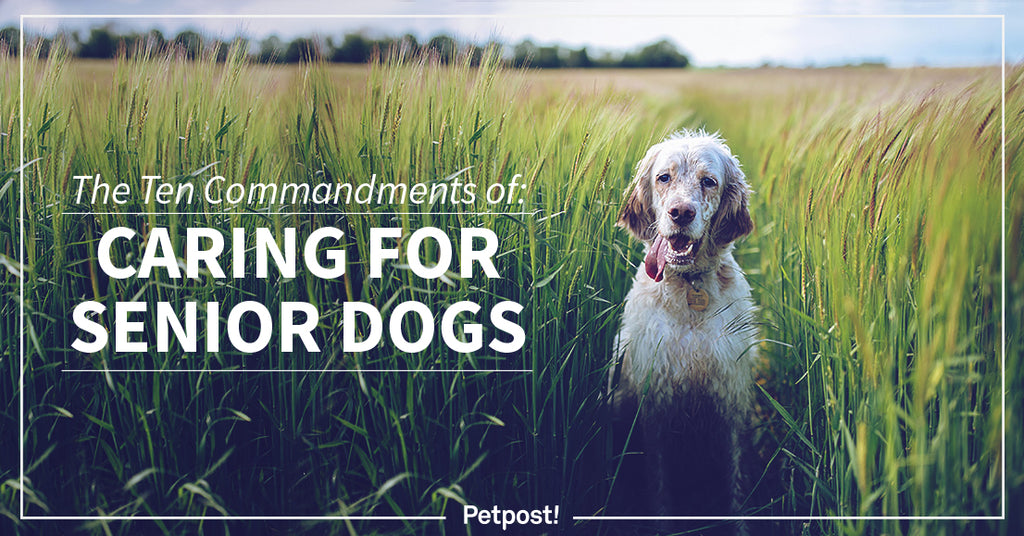
A dog’s love is pure, and it’s for life—and unfortunately, in most cases, that life is all too short. Caring for senior dogs is part and parcel to being a canine’s loving and responsible human, and it’s important that we give them the best care during their geriatric years.
Fido may not be as quirky and energetic as he was when he was a wee pup, but loving him will just be as easy—you just have to make a few adjustments! Dogs don’t do human talk, though, so he may not be able to communicate his changing needs to you. BUT if he could, he’ll give you the Ten Commandments of Caring for Senior Dogs, all equally essential to keeping him healthy and happy.
1. THOU SHALL SPEND MORE TIME WITH ME.
He may not be up to hours of playing fetch in the park, or chasing balls around the yard over and over anymore, but as a senior canine citizen, Max needs his human friend’s companionship more than ever. Some make the mistake of boarding their aging dogs at the vet’s or geriatric facilities, thinking that they’ll receive more care in there than at home, but there is no place like home for him.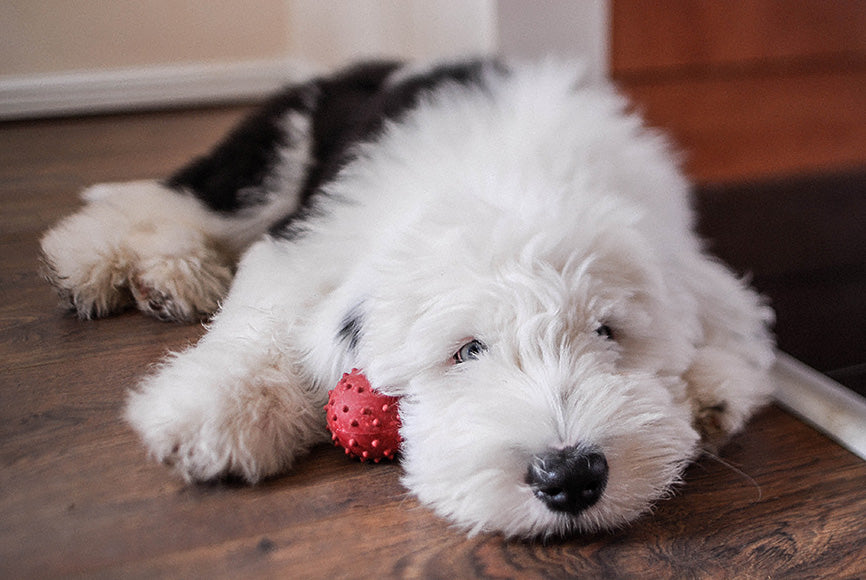
One of the best ways to show how much we love our pooch—and how thankful we are for the affection and joy they bring to us—is simply spending time with them. Whether it be more cuddle time, or increased TV-and-couch privileges, or longer (but gentler) walks around the neighborhood with lots of pit stops for treats and ear scratches, upping both the quality and quantity in being with your dog goes a long way in boosting his overall wellness and morale.
2. THOU SHALL GIVE ME PROPER FOOD
Senior doggies have very different dietary needs compared to their younger counterparts. Not only will they need easily digestible noms, they have to be of good, high quality, too. So don’t scrimp on the kibbles—cheaper, poor quality commercial food has more unnecessary junk than a garage sale, and may lead to bad coat, digestive problems, and organ issues. There are age-specific food brands that you can get with the guidance of your favorite veterinarian. You can also inquire about providing Bubbles with the appropriate, natural, home-prepared meals.
Ask your vet about giving your pooch additional vitamins and other supplements as well. Antioxidants, join-support, and organ boosters may be in order for grandpa Goober,
3. THOU SHALL KEEP ME FIT
Once you’ve worked out the right food for Fifi, the next thing is to make sure that she doesn’t pack on too many pounds. Her bones and joints are at a critical stage during her senior years and may not be able to support a portly body. She is also more susceptible to heart problems, diabetes, and liver issues during her geriatric years.

One good tip: instead of giving chunks of savories to Sal, prepare a healthy fistful of fiber-rich, vitamin-packed fruits and vegetables such as carrots, apples, zucchinis, or bananas for him to munch on in between the bigger main chows. They taste great and provide necessary nutrients without adding to the weighing scale.
4. THOUGH SHALL EXERCISE ME REGULARLY
One way to prevent obesity is making sure your white-muzzled buddy gets enough workout everyday. And no—we don’t mean running a marathon or hiking like you both used to a few years back. Caring for senior dogs means making sure he doesn’t waste away on the bed. A few minutes of gentle walking, fresh air, and good old vitamin D from the morning sun is always great even for the slower folks—with lots of encouragement and no rushing. Doing this regularly will steer his muscles away from atrophy, and brighten his disposition.
For the more specialized limb care, you may want to talk to your vet about hydrotherapy. Swimming helps heaps in maintaining good muscle mass without straining the joints—just make sure you have the correct regimen specifically for your pooch. A good rub down after a day of doggie exercise is always a treat, too.
5. THOU SHALL KEEP MY TEETH STRONG
Fidelma’s chompers have already had years’ worth of hard work behind them, so giving them special care is important to make sure they don’t give up too soon.
Dental care is something that needs to start from puppyhood. Diseases related to canine teeth are the most common—and some of the most painful—health problems for aged dogs. Gingivitis and other mouth infections due to poor hygiene can also affect major organs, such as the liver, heart, kidneys, and the digestive tract. 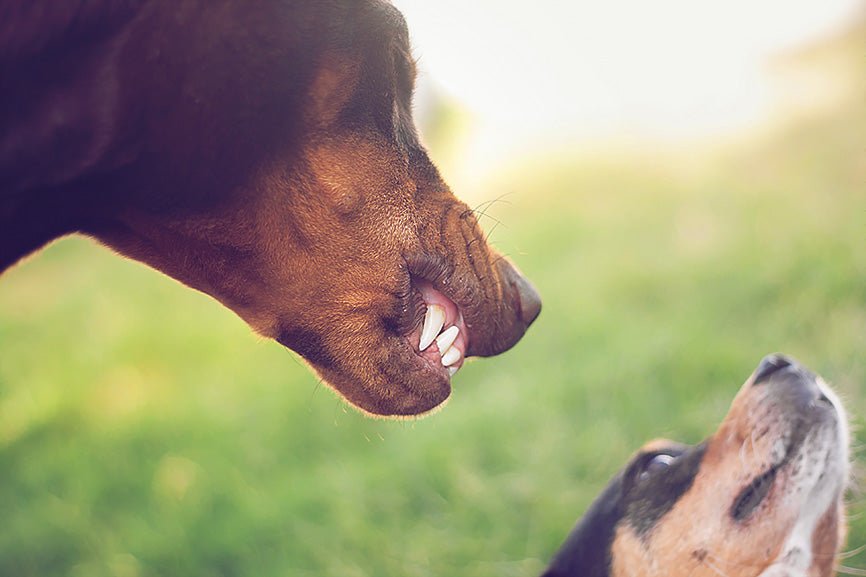
Aside from your routine cleaning and maintenance, make sure to include dental check-ups as part of your visits to the clinic. Most procedures from the diseases we mentioned above require surgery in advanced cases, and they require anesthesia—senior dogs are always at higher risk in these operations. Prevention is definitely better than the multitude of potentially precarious consequences that could result otherwise.
6. THOU SHALL KEEP MY MIND SHARP
Maintaining the physical body is always present in most guides for caring for senior dogs. However, enriching and stimulating your pooch’s mental health is just as vital. It’s too easy to not notice Gizmo quietly hunched in a corner, showing no interest in the goings on around him.
Cognitive dysfunction or senility in older dogs is not uncommon. Keep his mind stimulated by making sure you spend more time interacting with him (see commandment no. 1). He may not be able to roughhouse it with you, but reviewing those basic obedience commands a few times at home, or taking him to new places to explore new smells, textures, and sights at his own pace is a great way to keep Shadow sharp and prevent depression.
Should you notice any unusual behavior changes or abrupt shifts in his disposition, give your vet a call.
7. THOU SHALL NOT BE IMPATIENT WITH ME
With old age comes slower reflexes, and sometimes, Hunter won’t be able to make it to his usual potty spot, or come right away when you call him. It can get downright frustrating if he starts to stop cooperating in now unpleasant activities like grooming or taking medicine.
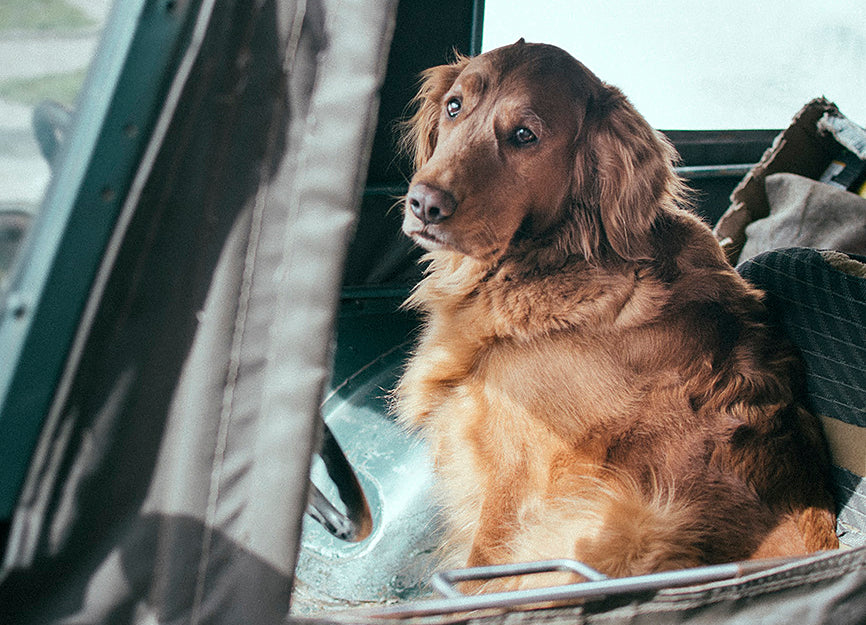
Make sure you never lose your patience with him. There will be times when he won’t know that you’re helping him by giving him those awful capsules, and there’s a possibility that you’ll have to clean up his accidents on the living room floor and your sheets more often now. Never raise your voice or correct him if you know it cannot be helped.
8. THOU SHALL KEEP QUIET. REALLY.
Senior canines have considerably less energy, so it’s no surprise that they tend to sleep more than younger ones. Giving your pooch several choices for a quiet snooze is ideal for those multiple naps—just make sure there are no boisterous children or younger animals that could wake them up with loud noises or sudden movements.
For dogs with compromised hearing, touching them or lifting them without warning may jolt them awake and stress them out, so if they’re sleeping, do not disturb.
9. THOU SHALL TAKE IT EASY ON MY LIMBS
The older Ziggy gets, the more worn out his legs, so aside from providing vet-approved joint care supplements, you may need to make some changes in his living arrangements. Slippery, hard, and cold floors can worsen arthritis and can be risky for the more brittle Britney. Keeping her in carpeted flooring helps maintain good traction without much effort of her part, and providing a properly-leveled raised bedding is helpful for getting in and out without having to bend those limbs too much.
If your fur baby loves to sleep beside you, but can’t jump up on the bed as well as he did when he was a puppy, setting up a few step boosters prevents unwanted mishaps and emergency trips to the clinic over broken bones or dislocations.
And again: massaging is gold.
10. THOU SHALL BRING ME TO THE VET—OR THE VET TO ME—REGULARLY
This goes without saying, but keeping a regular schedule of tune-ups and check-ups is not only necessary—it’s crucial. Monitoring your dog’s health during his senior years is key to avoiding unwanted pains and diseases—and unwanted pains in the pocket, too (treatment and emergency fees are more expensive than routine consultations).
Your vet is your best partner in determining how you can provide the best options for your furry buddy, and keeping him updated with your pooch’s current condition will make it easier to maintain Chichi’s health and wellness. If she’s not to happy to see Dr. Injections in his clinic, or if she gets too stressed with the trip going there, ask how you can arrange to do the minor appointments at home.
It’s going to be an emotional ride for you and your pooch, but with the unconditional canine love and unwavering puppy loyalty, you know it will all be worth it.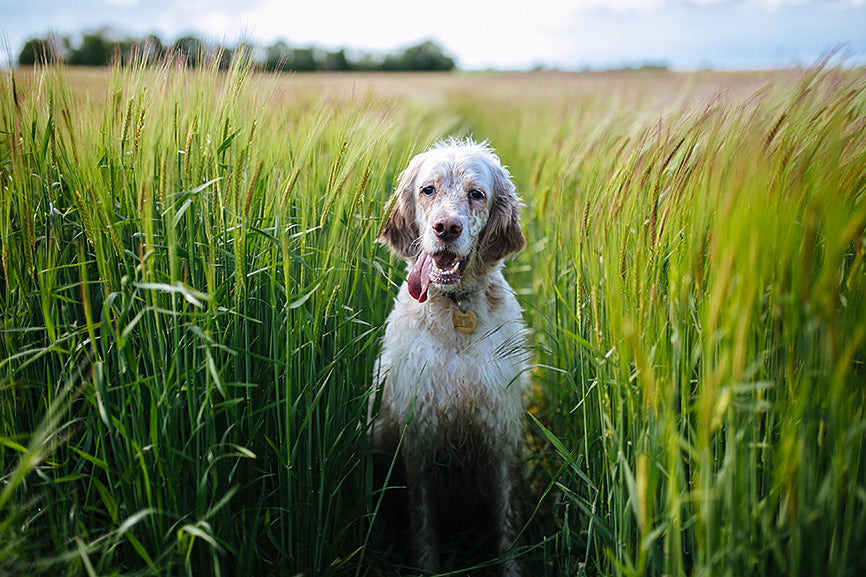
Do you have a grey-nosed fellow in your home? Tell us all about him or her, and how you maintain a good quality life for your beloved senior!
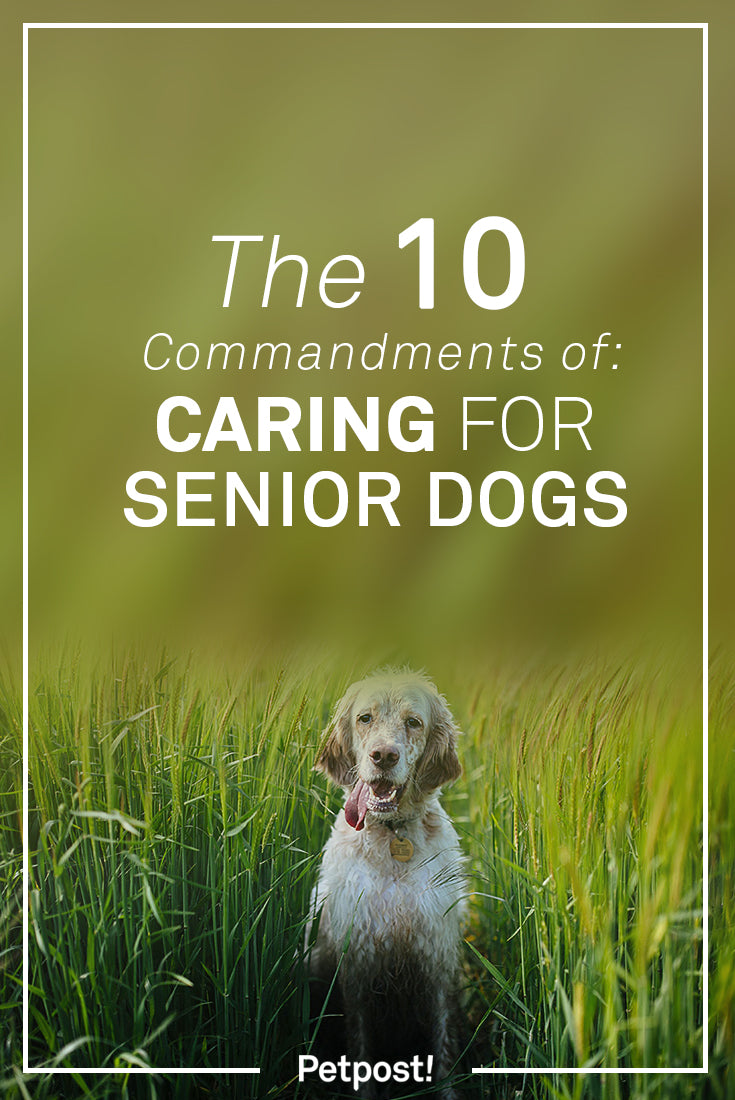


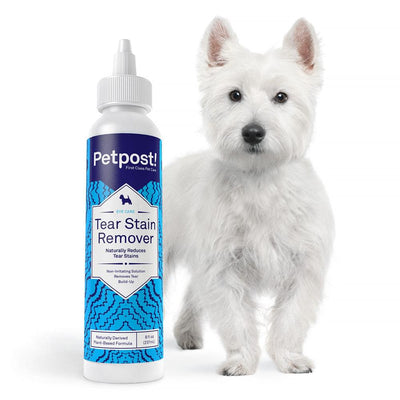






Leave a comment